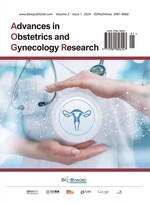Abstract
In recent studies, researchers have found a close relationship between intestinal microecology and human papillomavirus (HPV) infection. Gut microbiota refers to the microorganisms present in the human intestine, including both beneficial and harmful bacteria. These microorganisms exert a significant impact on human health. Some studies suggest that an imbalance in gut flora may lead to systemic abnormalities and increased susceptibilities to HPV. Consequently, the adjustment of intestinal microbiota to counteract HPV has emerged as a rapidly growing research area. Probiotics, as essential components of intestinal microecology, can effectively modulate it. They increase the population of beneficial bacteria while suppressing the growth of harmful ones, thereby restoring the balance of intestinal flora. This, in turn, contributes to intestinal health, bolstering the body’s defenses. This article aims to explore and review the relationship between intestinal microecology and cervical HPV infection.
References
Pang H, Li K, Han B, et al., 2023, Effects of Postoperative Radiotherapy for Cervical Cancer on the Imbalance of Intestinal Flora Structure in Patients. Chinese Maternal and Child Health Care, 38(12): 2157–2160.
Nguyen CL, Markey KA, Miltiadous O, et al., 2023, High-Resolution Analyses of Associations between Medications, Microbiome, and Mortality in Cancer Patients. Cell, 186(12): 2705–2718.e17. https://doi.org/10.1016/j.cell.2023.05.007
Park JS, Gazzaniga FS, Wu M, et al., 2023, Targeting PD-L2-RGMb Overcomes Microbiome-Related Immunotherapy Resistance. Nature, 617(7960): 377–385. https://doi.org/10.1038/s41586-023-06026-3
Han B, Kong X, 2023, Research Progress on the Relationship between Intestinal Microecology, Endometrial Microecology, and Endometrial Cancer. Journal of Practical Obstetrics and Gynecology, 39(8): 591–594.
Zhang L, Ping S, Hao Y, et al., 2023, Risk Factors for High-Risk HPV Infection in Infertile Women and Its Impact on T Lymphocyte Subgroup Levels. Chinese Journal of Hospital Infection, 33(18): 2837–2840.
Naghavian R, Wolfgang F, Oldrati P, et al., 2023, Microbial Peptides Activate Tumor-Infiltrating Lymphocytes in Glioblastoma. Nature, 617(7962): 807–817. https://doi.org/10.1038/s41586-023-06081-w
Li Y, Wang N, Zhang Q, et al., 2023, Screening Methods and Applications of High-Risk HPV Infection in Patients with Cervical Lesions. Chinese Journal of Hospital Infectious Diseases, 33(22): 3461–3465.
Shalon D, Culver RN, Grembi JA, et al., 2023, Profiling the Human Intestinal Environment Under Physiological Conditions. Nature, 617(7961): 581–591. https://doi.org/10.1038/s41586-023-05989-7
Sui X, Zhang X, Liao M, et al., 2023, The Relationship between the Degree of Cervical Lesions and the Distribution of Vaginal Flora in High-Risk Human Papillomavirus Infection. Chinese Journal of Hospital Infection, 33(22): 3456–3460.
Jiang L, Ma S, Zhang G, et al., 2023, Analysis of Tobacco Exposures and High-Risk HPV Infection in American Women: National Health and Nutrition Examination Survey. Environ Sci Pollut Res Int, 30(51): 110489–110498. https://doi.org/10.1007/s11356-023-30175-7
Luo C, Liu J, Liu L, et al., 2023, Classification of High-Risk HPV Infection in Patients with Cervical Lesions, Its Influencing Factors and Model Construction. Chinese Journal of Hospital Infection, 33(23): 3630–3634.
Liang Y, Gao K, 2023, Effect of External Irradiation of Cervical Cancer on Intestinal Flora. Journal of Hebei Medical University, 2023(10): 1168¬–1177.
Wang M, Yuan Y, Song A, et al., 2023, Research Progress on the Regulatory Effect of Microecological Regulators on Intestinal Microbiota Under Heavy-Load Exercise. Life Science, 35(12): 1639–1651.
Mondatore D, Bai F, Augello M, et al., 2022, Persistence of High Percentage of Peripheral Activated CD8+ T-cells Predict Cytologic HPV-Related Dysplasia in cART-Treated, HIV-Positive Subjects. Open Forum Infect Dis, 9(4): ofac046. https://doi.org/10.1093/ofid/ofac046
Sheng X, Zhu R, Li S, 2020, Clinical Study on Intestinal Microecology and Cervical Cancer Combined with Radiation-Induced Intestinal Damage. Parenteral and Enteral Nutrition, 27(2): 78–83.
Du H, Fan J, Fan M, et al., 2022, The Impact of Intestinal Flora on the Progression and Treatment of Malignant Tumors. Medical Information, 35(2): 57–60.
Xie L, Li Y, 2022, Research Progress on the Relationship between Intestinal Flora and Cervical Cancer Immunotherapy. Cancer Progress, 20(19): 1954–1957.
Laurie C, El-Zein M, Tota JE, et al., 2022, Efficacy of a Carrageenan Gel in Preventing Anal Human Papillomavirus (HPV) Infection: Interim Analysis of the Lubricant Investigation in Men to Inhibit Transmission of HPV Infection (LIMIT-HPV) Randomized Controlled Trial. Sex Transm Infect, 98(4): 239–246. https://doi.org/10.1136/sextrans-2021-055009
Yang F, Guo Y, Jiang F, et al., 2023, Research on the Effectiveness of Probiotic-Assisted Radiotherapy in Patients with Cervical Cancer and Analysis of Its Effect in Preventing Radiation Cystitis. Chinese Medical Engineering, 31(1): 33–37.
Carter MM, Olm MR, Merrill BD, et al., 2023, Ultra-Deep Sequencing of Hadza Hunter-Gatherers Recovers Vanishing Gut Microbes. Cell, 186(14): 3111–3124.e13. https://doi.org/10.1016/j.cell.2023.05.046
